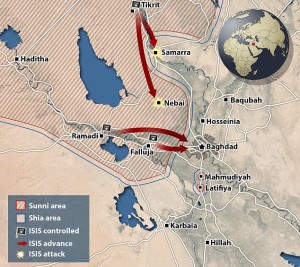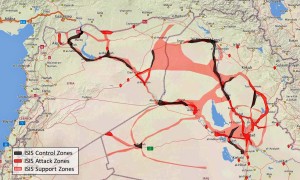Although it has been shamefully underreported by major media outlets in NZ, war correspondent Jon Stephenson has won his defamation case against the NZDF by forcing a settlement that involves significant compensation and an admission by the military that its defamatory statements about Mr. Stephenson were indeed untrue. It remains to be seen if the Prime Minister will do the same, since he opined at the time the controversy erupted over Mr. Stephenson’s internationally recognised article “Eyes Wide Shut” in Metro Magazine (May 2011) that Mr. Stephenson was, to paraphrase closely, “unstable” as well as “unreliable.” That has been proven to be false and Mr. Key knew at the time he uttered his comments that they were untrue. Let us be clear: Mr. Stephenson may be driven, but unlike his main accusers when it comes to reporting on the NZDF he is by no means unreliable or a liar.
I wrote the following as a comment over at The Standard but feel that it is worth sharing here:
“I suspect that we have only seen the tip of the iceberg when it comes to the unethical behaviour of the NZDF and political leadership in this affair. Remember that there is a MoD involved and the respective ministers then and now (Coleman and Brownlee). There are more officers involved than retired generals Rhys Jones and Mateparae, some who currently hold senior positions within the NZDF. There is the behaviour of Crown Law to consider. There is the slander on Jon’s character uttered by the PM.
I can only hope that the terms of the settlement do not prevent Jon from publishing more details of his case, including the way in which the legal process unfolded, the obstacles to discovery encountered, and the extra-curriculars surrounding them.
Whatever happens, for once in a long time one of the genuine good guys won. Were it that other members of the press corps (Nicky Hager excepted) had the integrity and courage exhibited by Jon both in the field as well as on the home front.
Kia kaha Jon!”
Beyond what I have written above, there are some other questions that arise from this saga.
For example, in 2013 Nicky Hager revealed that the NZDF electronically spied on Mr. Stephenson in 2012 using NSA, GCSB and SIS assets while he was in Afghanistan. At the same time an internal Defense manual was leaked to the media that identified “certain investigative journalists” as hostile subversion threats requiring counteraction because they might obtain politically sensitive information (one does not have to have much imagination in order to figure out who they are referring to). In parallel, reports emerged that NZDF officials were sharing their views of Mr. Stephenson with Afghan counterparts, referring to him in the same derogatory terms and implying that his work was traitorous or treasonous.
Taken together, both the spying on Mr. Stephenson and the characterisation of him passed on to NZDF Afghan allies can be seen as a means of counteracting his reporting. But if so, what national security threat did he really pose? Is politically sensitive information necessarily a threat to national security or is merely a threat to the political actors being reported on? Is intimidation part of what the NZDF considers to be proper counteraction when it comes to journalists plying their trade in a war zone? And since any counteraction or counter-intelligence operations had to be cleared and authorised by the NZDF and political leadership, were both of the types used against Mr. Stephenson authorised by then NZDF Chief Lieutenant General Richard Rhys Jones and/or Mr. Key? They deny doing so but if that is true, who did and how was it passed down the chain of command to the field commanders in Afghanistan (because, at a minimum, the order to “counter” Mr. Stephenson could be construed as illegal and therefore challengeable–but it never was).
Leaving aside the legitimate role of independent journalism in a democracy in holding policy makers–including military leaders–to account, what does it say about the NZDF that it sees such work as subversive? More alarmingly, if the reports are true, what exactly did the NZDF leadership hope to accomplish by telling Afghans, while Mr. Stephenson was in Afghanistan, that he was a threat to them?
Then there is the issue of the lie. General Rhys Jones claimed that, contrary to what was written in his story, Mr. Stephenson never visited the base in which the Crisis Response Unit (to which NZ SAS were attached) was located and did not talk to its commander. That was a direct challenge to Mr. Stephenson’s journalistic integrity. Mr. Stephenson sued for defamation and during the first trial (which bizarrely ended in a hung jury) the NZDF and Rhys Jones himself admitted that Mr. Stephenson’s version was true.
So why didn’t the trial stop right there? The moment the truth of Mr. Stephenson’s story was admitted by Rhys Jones, it was supposed to be game, set and match to the journalist. But instead the Crown spent hundreds of thousands of taxpayer dollars continuing to litigate in that trial and then the follow-up court process that was ended by the recently announced settlement. Why so?
The answer to the last questions seems to be that, like in the Zaoui and Urewera 18 case, the Crown prefers to bleed its adversaries emotionally and financially even when it knows that it can not win. This death by a thousand cuts approach, courtesy of the taxpayers largesse, is as unethical as it is cynical and undermines the belief that justice in New Zealand is blind and universal.
There are many other questions that need to be answered about the treatment of Mr. Stephenson. Is it true that media outlets were pressured to not accept his work on penalty of getting the cold shoulder from the government? Did NZDF officials physically threaten Mr. Stephenson in New Zealand? Did the intelligence services spy on Mr. Stephenson above and beyond what was reported by Mr. Hager, both at home and abroad, and are they doing so now, and on what grounds if so? Did NZDF and/or MoD and/or PMDC and/or Crown Law officials conspire, either solely or together, Â to cover up, obstruct, alter, destroy or otherwise impede the release of evidence to Mr. Stephenson’s lawyers at any point in the legal proceedings?
My sincere hope is that the settlement agreed to by Mr. Stephenson and NZDF does not preclude the former from writing about his experiences with the NZDF, both in Afghanistan and during the trials. Hopefully he will be able to answer some of the questions I have posed above. I say this because something stinks about the way this affair has been handled at the highest levels of government, which is not only a stain on the individuals involved but a direct affront to basic tenets of liberal democracy.


